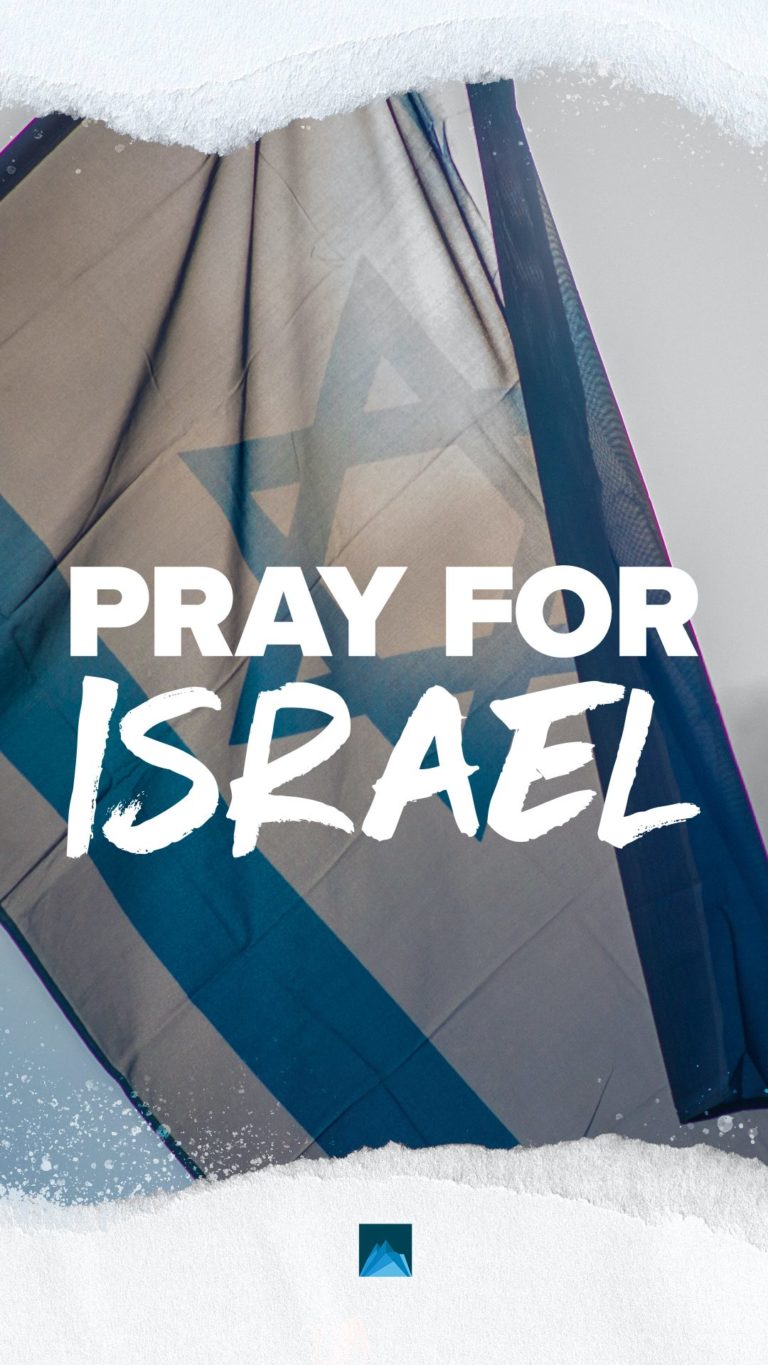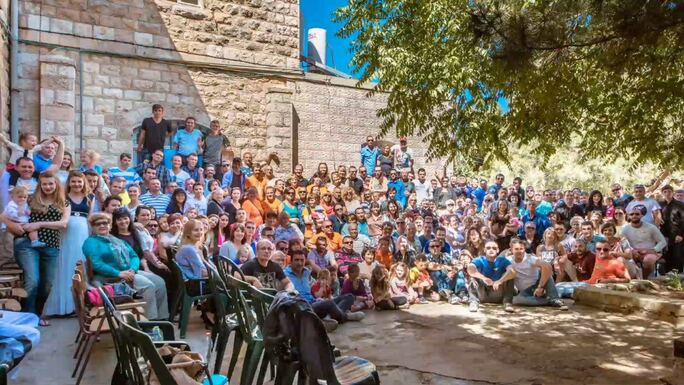Russian Speakers in Israel
Outside the region of the former Soviet Union, Israel has the third-largest community of Russian speakers in the world. Following only the USA and Germany, this fact is especially surprising considering Israel’s small size.
Both the early aliyah in the 1970s and the “great migration” of late 1980s and early 1990s have brought great cultural value to the young Jewish state. A lot of the Soviet Jewry were well educated and skilled in their professions.
But one area where they were no experts was the religious life.
Life under the Soviet Rule
The Jewish life in what used to be the Soviet Union was very complex. On one hand, for generations prior, Jewish families were known to be actively involved in education and art. They were part of the higher class.
Then, the Second World War brought horrendous destruction and the survivors were dealing with awful trauma. Suddenly, Jewish identity was nothing to be proud of and many tried to conceal it, usually out of fear.
By the time the Soviet Union was established, the reputation of the Jewish people was tarnished. Having lost many of their possessions, their status in the society dropped.
On top of that, the soviet rulers hated all religion. They saw personal faith as a threat to complete obedience and loyalty to the state. The USSR became the first state to officially legislate elimination of existing religion. Thousands of synagogues were permanently closed.
Jewish Life Emerges
“The Soviet regime was persecuting people of faith and jailing those who owned a Bible,” shared Alexander Riback, a minister at Living Israel congregation in Haifa. “So Russian speaking Jews [in the Soviet Union] were punished for having any spiritual life at all.”
Nevertheless, although the spirit of the people was seriously quenched, their heritage survived. The descendants of Abraham, Isaac and Jacob lost touch with the teachings of Moses, but they knew they had distinct identity. They were different from their neighbors.
And they struggled under the Soviet rule. So when Israel became independent in 1948, many started dreaming of their Promised Land.
Aliyah of Russian Speakers to Israel
Initially, the soviet government allowed some to emigrate with the label of “family reunification”. They didn’t want people to think that anyone would ever want to leave the USSR.
But once the migration started for good, there was no stopping it. It reached its peak in early 1990s, and the Russian speaking Jews increased Israel’s population by 20 percent almost overnight.
But suddenly, in their new homeland, something switched.
“It was strange in the beginning,” Aleksey Raikhstadt, pastor of Beit Immanuel Congregation in Tel Aviv-Jaffa shared with FIRM about his experience of making aliyah to Israel. “[In Russia] I was Jewish. I had a different name, and I knew I stood out. And in Israel? Suddenly, I am ‘Russian’! That was my new label.”
In Israel, they were no longer “the Jews”, but instead “the Russians”. The state considered them as having no religion. “You feel like an outsider either way. You can’t escape being put in a box,” added Raikhstadt.
Religious Background and Future
The religious laws in Israel are very strict. For example, since there is no civil marriage in Israel, as a Jewish person, if you are not rabbinically Jewish, you cannot legally marry. And approximately 300,000 olim (immigrants) from the former Soviet Union are not considered Jewish according to halacha (Jewish religious law) or recognized as Jewish by the Israeli Rabbinate.[1]
“It’s humiliating, like you are a second-class citizen,” said Riback with regret. “In order to get married, you have to fly to Czechia or Cyprus… it’s also a great financial burden.”
With challenges like this, one must stay grounded and confident in who they are. At the same time, the Jews from the former Soviet Union did not try to adapt to the Orthodox communities either. They couldn’t (and had no desire to) identify with the religious sector.
And yet, somehow, an increasing number of Russian speakers in Israel find their way to a faith community – the Messianic one.
The Israel of All Tribes
The Messianic congregations give Russian-speaking Israelis a new sense of belonging. More importantly, Yeshua restores their identity – as heirs of promises and upholders of the covenant. As sons and daughters of God.
“[As Messianic believers], we do feel different. But we find guidance in the Bible, not the religious leaders,” explained Raikhstadt.
Raikhstadt admits that he learned more about the history of the Jewish people after he met Yeshua. In Israel, he finally connected with Biblical traditions, Jewish (Biblical) holidays and observances. But it all gained meaning in the house of faith. And fast forward several years – today Raikhstadt is a pastor.
Children of Russian speakers, who were already born in Israel, still get asked where they “came from”. Most of them bilingual, they don’t know life outside of Israel. In Messianic congregations, they too found their place. For many families, it is the children who encourage them to build booths for Sukkot or light candles on Hanukkah.
Praying in Russian
Although free Hebrew courses are offered to every immigrant, some Russian speakers decided not to take them. They have newspapers in Russian, a private Russian TV station and entire neighborhoods where Russian is the dominant language. Their children often grow up to be their bridge with the Hebrew speaking society.
Many Messianic congregations use Russian as their primary language or at least have translation to Russian available. Few people realize that the largest demographic in the Messianic movement in Israel is the Russian speakers. Or, to put it more broadly, Jews who immigrated to Israel from the former Soviet states.
“Russian speaking Jews are more open [to the Gospel] because the soviet regime caused a spiritual vacuum in some way,” shared Sergey Mazhuga, pastor at ICF Tel Aviv. “The reason why so many of them are open to hearing about Yeshua is because they came to Israel without any belief systems. They didn’t have a wall up.”
The Messianic World of Russian Speaking Israelis
Mazhuga and the ICF Tel Aviv fellowship created a space where their fellow believers can feel comfortable, both as Russian speakers and as Israelis. ICF services are currently held in Russian, but the leaders hope to expand to Hebrew and English soon.
It has now been three decades since the biggest wave of Aliyah from the former soviet states. And still there remains a very distinct Russian-speaking community in Israel. Conservative in their politics, liberal in beliefs, and more and more open to spirituality.
That is why local ministries in Israel are ready to share the Good News in their mother tongue. FIRM is proud to support ministries like ICF Tel Aviv, Living Israel and Beit Immanuel, to name a few. They have been successfully reaching out to the Russian speakers in Israel to share hope and light.

How to Pray for Israel: Free PDF Download
Today, more than ever, Israel needs your prayers. Learn three simple and effective ways to stand with Israel in prayer, today.
We’ve put this guide together for you so that you are even better equipped to bless Israel as you pray for Her.
Articles Related to Russian Speakers in Israel
Estimated reading time: 6 minutes
[1] Refworld.com by UNHCR, after Jewish Agency for Israel, updated: 01 October 2021.


